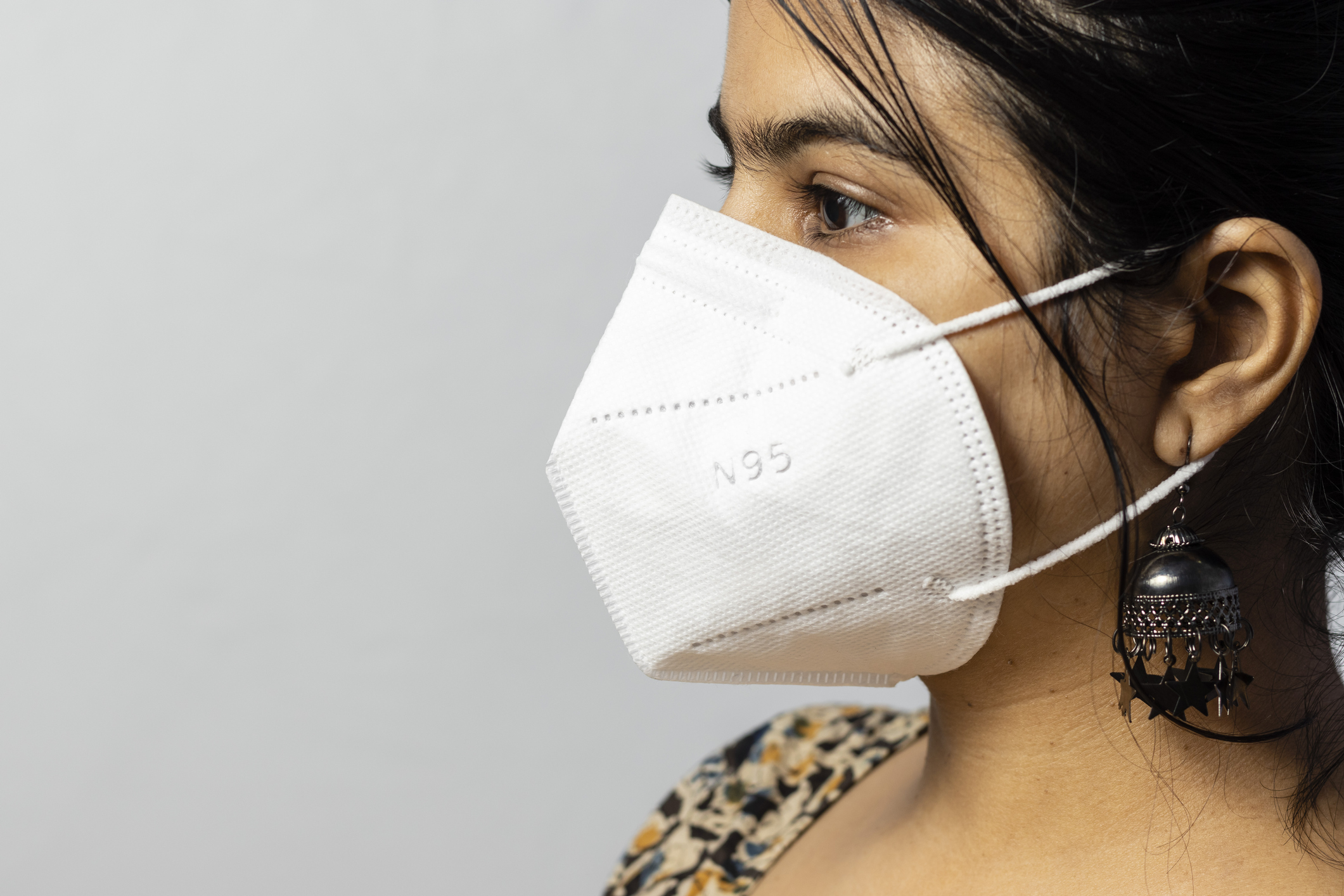

The country is now entering its third year of dealing with COVID-19 and the surge of the omicron variant is putting renewed focus on the importance of vaccines, boosters, and masks. But whether it’s pandemic fatigue or muddled messaging, that importance isn’t getting through to everyone.
Dr. Bhavna Lall, clinical assistant professor of adult medicine in the Department of Clinical Sciences at the University of Houston College of Medicine, addresses some key issues in the following Q&A.
1. Why is there so much confusion over masks?
The confusion started at the beginning of the pandemic when personal protective equipment, including N95 masks, was in short supply. It has always been known that fitted N95 masks would provide some of the best protection against infection, thus health care workers across the country use them and have used them in the past to prevent other airborne diseases such as tuberculosis.
2. Why is the N95 mask best at preventing the spread of COVID-19?
Given how contagious the omicron variant is, it would be best for everyone to wear high quality masks such as N95, KN95, or KF94. If those aren’t available, you can use a surgical mask with a cloth mask on top. Cloth masks have limited effectiveness in preventing spread given how contagious omicron is. It is important that regardless of what kind of mask you use, make sure that it is fitted well for your face and you are comfortable wearing it for long periods of time and it must cover your nose and mouth.
3. Is there a difference in the best masks for adults and children?
Children can also wear KN95 masks and they are available through multiple online sources including Project N95. If these aren’t available, children, like adults, can use kids size surgical masks with cloth masks over them.
4. Can an N95 mask be reused?
If you are not wearing your N95 mask very often and want to reuse it, and you have other N95 masks available (for example, the three free ones available from the U.S. government), you could take paper lunch bags, label them with days and then rotate the masks every 72 hours. You should not wash the mask. Once it is soiled and dirty, throw it away. You also must be careful to sanitize or wash your hands with soap and water before putting the mask on or taking it off. And if you are around someone you know has COVID-19 when wearing the mask, you should throw it away the mask at the end of the day.
5. Where can I get an N95 mask?
The U.S. government is distributing 400 million masks around the country to pharmacies and community health centers. You should be able to get three N95 masks for free per person through these sites. In addition, it’s important to wear masks over the nose, not below it, and they should fit your face well with no gaps. Wearing a fleece sweatshirt, bandana or piece of cloth is not sufficient. It is not sufficient to cover your face with a ‘face covering.’ Wear only high-quality masks to prevent the spread of COVID-19 for yourself, your colleagues and classmates, and others you may not realize you are encountering who are at high risk for severe disease in your community.